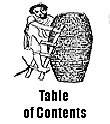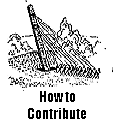
 Addis Lullabies by: Dawit B. Getting acquainted… again The afternoon sun is overwhelming, fiercer than my memory of it. The gate of our home ignites a train of memory, disconnected and a bit hazy. My mind drifts back to summertime and the games we played with neighborhood kids outside, and my attempts at befriending the rough boys who played soccer. They'd hit our door numerous times until the guard chased them with his cane. The early eighties were a peculiar time in Addis. For our parents, it was a dangerous time coming after Ethiopia's own Holocaust. They no longer had any doubts about people's propensity for evil. For my generation, the Red Terror was a mysterious word used by the grown ups in discussing the missing brother or sister. War was, of course, a constant. Nothing to worry too much about in Addis. Our childhood was normal by Ethiopian standards, until we reached our teenage years and our parents refused to let us go outside the house even for a burger at BolE Mini. We never associated the lack of personal freedom with the daily affessas and the ever-encroaching war. We hated our parents' irrational rules, hence we were only too happy when they decided to send us into exile. The overnight farewell parties became a sort of coming-of-age. We would jump out of our bedroom windows dressed in Michael Jackson jackets and Madonna inspired headbands into cold Addis nights to home parties. All the parties were the same. Houses full of kids waiting to get out, and at each party, inevitably, one would announce one's departure the coming week… "so party next week at my house". Frivolously and without much fanfare, many of my generation from Addis left Ethiopia without understanding ourselves, our country and our place in relation to Ethiopia. Now, as I stand in the old neighborhood thirteen years after leaving it, a sense of emptiness surrounds my comeback. Today's Addis seems like a foreign city. It is like getting to know a lover from the past. There are memories that tie me to this city, however I have changed and so has the city. The first few weeks, I walked around in a daze overwhelmed by everything. The overcrowding, pollution, and the sheer enormity of people's suffering is daunting. At times hopeless. My cousin has remained in Addis as most of us fled. He is the consummate player, fully integrated into the life of the city; he does the right kind of work, he knows all the right people, and most importantly, he knows all the right places to hang out in Addis. After hearing my constant lectures on the ills of our country, he fired back at me " Do you work for the IMF or the World Bank?" I answered no. "Then stop acting like one! You're here after thirteen years; you left when you were thirteen, so you have no right prescribe answers here. The best you can do is just understand what people go through, and for fuck's sake enjoy yourself!" He was right. I had come home for six months and it was time to feel at home. I needed a communion of the senses. That afternoon, my cousin took me to his favorite bar. A rustic place with a courtyard as labyrinth as Lalibela. It was 4 p.m. and already the place was teaming with people. As we walked in, every crevice was crammed with professionally dressed clientele. Draft beer was flowing abundantly. My cousin and I sat at a corner, happy to feel the coolness emanating from the stone walls. A friend of my cousin's who had come right after us, approached our table, gave my cousin a nod and without saying another word emptied his glass of cold d'eeraft while silently thanking forty four Gods for the privilege. He ordered a second glass and emptied the contents with the same look of grace, after which he proceeded with customary hellos. He was a young man in his early thirties; a pleasant guy with a voice that complemented his rather shy mannerism. I liked him instantly (a man who knows the importance of the first drink of the day). The night came slowly and the drinks went fast. The conversation was quintessentially Ethiopian-- every person professing expert knowledge in all things. Ironically, a number of the men present were actual professors at AAU, hence the level of ego seemed beyond the heights of EnToTo. ~~~~~ Establishing a Routine The knowledge of being home gives me a sense of bi-polar euphoria-- a series of highs intermingled with fear. Fear that comes from a lack of routine. Such apprehension soon evaporated after starting work. My primary reason for my trip was to help my Dad with his business. My father was having health problems and I wanted to take over until he fully recovered. Working in Ethiopia has its traditions. America instills in us a certain way of looking at efficiency. Different from the norms in Ethiopia. I quickly became aware of this discrepancy; thus, this will not be another Hellhole Diaries. I actually kind of liked the quirky clerks in the many government offices who had a rule about not making eye contact or speaking in inaudible volumes. I fast immersed myself into Addis's business routine. By eight in the morning I was at the office. Around 10.00 a.m. I would drive to La Parisian for some macchiato and croissant. Right around that time the beautiful people make their way to La Parisian. La Parisian is a small café with a large parking lot. The attraction is that you can show your new arrat b'arrat to the relevant crowd. The croissants are great too. It is an elaborate game. Beautiful people driving beautiful cars sipping buna, and speaking with an accent. They mingle and pose. People walk out of their cars with orchestration-- gliding like leopards cruising for other panthers. After all the drama at La Parisian, it is already time for lunch. Lunch is usually at Addis Golf Club or at Top View, the new restaurant with the best view of Addis' skyline. The Golf Club has a beautiful restaurant in the middle of the grass. After lunch, it's back to work. At 5 p.m. another cup of coffee at London café. Such a routine gives Addis a cosmopolitan feel. ~~~~~ An era revisited Early Sunday mornings have a universal charm. The air has ease about it, and in Addis the light is particularly magnificent. As a kid I use to love sitting on the porch on Sunday mornings. On this particular morning, the city had the usual Sunday morning glow. I was out 'till early morning and had only a few hours of sleep. I had promised my dad I would accompany him to the reburial of Emperor Haile Sellassie. I got myself ready with much difficulty (hangover is a bitch, especially when it is three days straight). My dad was meeting a group of his friends at a bole café in order to follow the funeral procession. The roads were almost serene. The usual madness of Addis streets gives way to tranquility come Sundays. People for the most part are at home or out of town. The café was full of Addis' business elite. Men in their fifties who, a quarter of a century ago, toppled a monarchy. They had been young visionaries ignited by the fire of a revolution. They had believed themselves " independently salvageable". Twenty-seven years later, they had become everything they'd fought against. They are rich capitalists in a poor country. The funeral would be a cathartic event-- a sort of apology to the old man. They had gathered at the café in order to follow the funeral procession in a procession of SUV's. They thought that a row of new SUVs would give gravitas to the event. They talked and reminisced about the revolution, justice and equality. When the time came to proceed, they summoned their chauffeurs via cell phones; they left their Mercedes parked at the café and got in the chauffeured SUVs. The line on SUVs made its way up to the Menelik Mausoleum. The Emperor's cortège, however, had already reached Mesqel Square. We had to make a U- turn. A sizable crowd was already there including many foreign journalists and diplomats. Seated in front was the Imperial family, together in Ethiopia after twenty-seven years. They sat in stoic silence. The family still had glimpses of its old majesty with that quiet reserve of royalty. The princes and princess had aged. The younger members of the family seemed out of place-- beautiful and regal in a western sense. They fixed their gaze upon the Emperor's casket. The road behind the ceremony was not closed off, so the usual traffic of taxis and buses passed by. Many in the capital hadn't known about the event. As the buses buzzed by, onlookers looked at the ceremony from afar. Ethiopia was burying one of her most important leaders, however, the country was by in large indifferent. A few weeks before, more than a million people had spontaneously erupted into the streets to greet the returning Olympic heroes, yet only a few thousand people had gathered to fare the Emperor good bye. It was a testament to change. It was especially interesting to note the absence of the young. Today's Ethiopia is a place without pomp, ceremony or slogans. It seems people are weary of public dramas because they know the real cost of such exercises. After the Meqel Square ceremony the cortège made it way up to Piassa. People along the route stood witnessing history not knowing how to rationalize the event. The next stop was Giorgiss, the church where Haile Sellasie had been crowned Emperor. It had made him king, and it was to be the final witness. After that, it was off to Sellassie, a cathedral built by the Emperor. The gathering crowed was not only weeping for Haile Sellassie, but for those uncountable millions who were consumed by the flames of revolution. The casket was placed into a crypt next to the one housing the remains of his wife. The ceremony was an appropriate end to an era. For my generation and for myself, it was a glimpse into another Ethiopia. Facing Up Public mood in Addis is sober and serious as the AIDS conference approaches. The disease is no longer a hidden fact in Ethiopia. It is a Holocaust unfolding within every family. An uncle, aunt, sister, brother, mother, father…everywhere, the disease has left a mark of sorrow. Ethiopians have yet to formulate a mourning culture for this unwelcome reality. Every afternoon one sees a column of woman fight cars for a piece of the street, dressed in their customary neTela with its embroidery tied around their waists on their way to funerals. Yosef's plots are fast over-filling. To be buried in Yosef, you need connections. Accordingly, every afternoon the traffic around Yosef is enormous (AIDS has knocked the doors of the rich and powerful too). Funerals are so common that it has turned into a routine. I had to attend a funeral of a family friend-- a beautiful young woman, elegant and smart, dead before her time. It is especially sad to see a young person die. It disturbs some kind of natural balance. The funeral was customarily at 1 p.m. We stand waiting for the ceremony to end; I notice the face of the dead girl's mother drowning in untold grief. After the Red Terror and everything that it encompassed, people in Ethiopia had thought that the slaughter of the young was over. AIDS is proving them wrong. The fires are burning and the young continue to be fuel. The funeral is soon over and we leave rejoining a city where resilience is prevalent as air. Three weeks later, I heard that the brother of the dead girl had also died-- more fuel for the fire. I think of the parents and I hate the fact that they will be forced to accept this. Sometimes when life conspires against us, it should be unacceptable. Alas, no such justice. The Addis AIDS conference is a big event. Everybody in the world of AIDS is here. Four African Presidents, numerous ministers, researchers, head of the UN, musicians and famous personalities had arrived in the capital. The Sheraton is Ground Central. Limos and bodyguards are everywhere. It appears that African governments are attempting to tackle AIDS. On the final night there is a big bash. The evening, proclaimed Artists against AIDS, gathers the cream of African artistry. In the chilly Addis night, in the magnificent Sheraton gardens, one can observe a sense of urgency. The night is a great triumph with the likes of Femi Kuti taking stage. At the end of the night, I remember back to day of the young girl's funeral, and somehow the night's hope seemed tragically naïve. ~~~~ Playing Spring Break Me and four friends from the States are planning an excursion to Langano (nothing to do in Addis). We start off customarily abesha (late). By the time all the liquor is purchased from Abrico (the only grocery store which carries Bombay Sapphire and is open twenty-four hours), it is 2 p.m. We drive off enjoying the wubet that is Ethiopia. The mountains are losing the deep green of kremt, yet they still retain the majesty of their creator. The clouds seemed humbled to appear in the same frame as the mountains. We get to Mojo and buy some Wendogenet CHat . The rest of the trip is tremendously more enjoyable. We are playing John Coltrain's A Love Supreme, high on CHat and peanuts, exposed to the unforgiving beauty of Ethiopia. One of my friends who had just graduated from medical school says something about CHat not being "that" bad for one's health. Not that we needed such professional guarantees, but it helped. The new road to Langano is a beautiful stretch. Possibly the only road in Ethiopia without flaws. It is dusk when we get to Langano. We had reserved bungalows at Beqele Molla. Most people going back home find that most places from their childhood seem smaller and less shiny. Langano is different. It has retained its former glory. The place is packed. I love how everybody gets away from it together. We soon join a big group from Seattle. They have come for a wedding and it seems the entire wedding party is here. The hotel has prepared a nice buffet right on the beach. As it gets darker we all go back to bungalows to get ready. Getting ready Langano style means mixing your drink in a 1.5 litter water bottle (disguised because you can't bring in your own alcohol and it eliminates the need for cups). Drinks in hand, we go to the beach joining another group. This crowd is the pure Addis version of the Rat Pack: young professionals ("ye abatE suQ" counts as professional) with money to spend and with an unquenchable thirst for fun. The music is loud. My friend is having what seems like a deeply heartfelt conversation with a beautiful girl--the kind of ET girl that makes you wake up every morning thanking God He created you Ethiopian. In an attempt to appear sincere, my friend is asking her all kinds of questions. She is a bit annoyed at the interrogation and a bit impatient with his fake sincerity. As the alcohol takes a hold of her, she faces him directly and shouts, "Qess b'leh demmo, T'wat Qurssichin mn belash litileN new!" He is a bit embarrassed. After a short silence they walk away from us, her hands firmly clutching his waist. Who said an honest outburst was bad? I run into an old friend from junior high. He is one of the few who stayed. He'd changed over the years. He's an architect now. We talk almost all night long about Ethiopian history, architecture and our lives. Intoxicated from alcohol and beautiful company, we greet a brilliant morning. ~~~~ New Year The approach of western New Year, Ethiopian Christmas, and the T'rr wedding season combine to give Addis an added exuberance. Ethiopians are arriving from all corners of the world. Parisian ET's with immaculately pressed shirts and exotic cigarettes chat in French at La Petti; ET's from England looking Nordic (minus the blue-eyed-blond thing) with gray wool turtle necks do lunch at the Golf Club; ET's from Amsterdam and Rome, always the rebels with majestic dreads, chill at CHat meQammia bEts around town; and the crowd from the States dressed in jeans and T-shirts, get their grub at any place with good Tbs or Kitfo. . The number of visitors is surprisingly large. The end of the two year war has given added impetuous for the tourist boom. Ethiopians from the States seem determined to top each other with huge wedding parities. A famous meto aleQa in the Derg era had just started her own Azmari bEt. In the past she had belted out war songs in a futile attempt to galvanize Mengistu's soldiers. Nowadays she stands behind a bar in a converted villa singing of love, and late at night of war. The bar is small and the group I am with fills it completely. Another group of Ethiopians from Vancouver sway to music sprayed with nostalgia. It was a group of four couples in their late forties. Their first visit home in thirty years. They have three open bottles of Black Label Whisky on their table. These couples are your average, responsible ET couples from North America (with a fondness for middle class norms), however, here, for a single night, they revel with gusto. One of the women overcome by emotion stands up and proceeds to misalE around the bar. Seeing her bravado and pure ecstasy makes me feel joy. It is not often you see a person unlock the proverbial door into the joy that is their past. The last night in Addis, old friends and new friends gathered at SoHo to bid us farewell. The place is packed as usual, and I notice for the first time that I know most everybody there. This is the magic of Ethiopia. The creation of friendships is a beautifully simple organic affair. Companionship is found in abundance in Ethiopia. Everywhere you look among the bliss and the misery one thing remains a constant: no one is alone here. Part of me had always longed for the communal immersion, yet the part of me that is tainted with the Western concept of personal space is a bit apprehensive. It is a constant struggle of exile. Reinaldo Arenas described it appropriately… "An exile has no place anywhere, because there is no place, because the place where we started to dream, where we discovered the natural world around us, read our first book, loved for the first time, is always the world of our dreams. In exile one is nothing but a ghost, the shadows of someone who never achieves full reality." Want to see more of the same? Click here for past My Story features.
|

|

|

|

|

|
| © Copyright SELEDA Ethiopia, June 2001. All Rights Reserved. |
